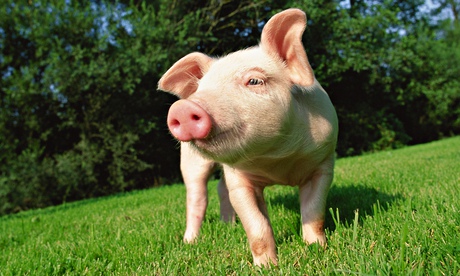
Given that our editorial guidelines that reference pigs and pork have been in place for as long as I can remember, little did I imagine that they would attract international headlines claiming that the Oxford University Press had banned sausages. To clarify, OUP does not have a blanket ban on pork products in its titles, and we do still publish books about pigs. Although there have been no recent changes to our guidance on this topic, these articles highlighted the fine balance needed when considering students’ cultural and learning needs.
Our publishing is led by our mission: furthering excellence in education worldwide. We are resolute in this, and I have seen the positive impact our resources can make all round the world. This is not just due to the quality, but also because they are relevant to the children that use them and make a real difference to their learning in the UK and the other 200 countries in which they are sold. Our reading programmes have taught millions of children to read across the globe.
To address children’s learning needs, it is important that they also reflect the cultural context in which children are learning. In the UK, we take it for granted that we would not include references to sex, violence, or alcohol in our textbooks; to do so would be considered inappropriate and offensive to many. In order to make an impact around the world, there are other sensitivities that, although not necessarily obvious to some of us, are nonetheless extremely important to others.
While we should be mindful of these cultural sensitivities, a healthy dose of common sense is also required. Cultural taboos must never get in the way of learning needs, which will always be our primary focus. So, for example, a definition of a pig would not be excluded from a dictionary, and we wouldn’t dream of editing out a “pig” character from an historical work of fiction. We also maintain entirely separate guidelines for our academic titles which are relevant to scholarly rather than educational discourse.
What we do, however, is consider avoiding references to a range of topics that could be considered sensitive – in a way that does not compromise quality, or negatively impact learning. So, for example, if animals are depicted shown in a background illustration, we would think carefully about which animals to choose. In doing so we are able to ensure children remain focused purely on their learning, rather than cultural characteristics.
Managing cultural sensitivities isn’t about reducing educational quality, pandering to minority views, restricting freedom of speech or self-censorship. It’s about ensuring the educational value of our publishing is able to navigate the maze of cultural norms for the benefit of students around the world. We want to ensure we can make the widest possible impact.
Does it surprise me that in times of heightened sensitivities there will be a keen focus on publishers’ educational guidelines? No. Will there be a moment when publishing for all audiences will be an easy process? Yes, I imagine so … when pigs fly.

